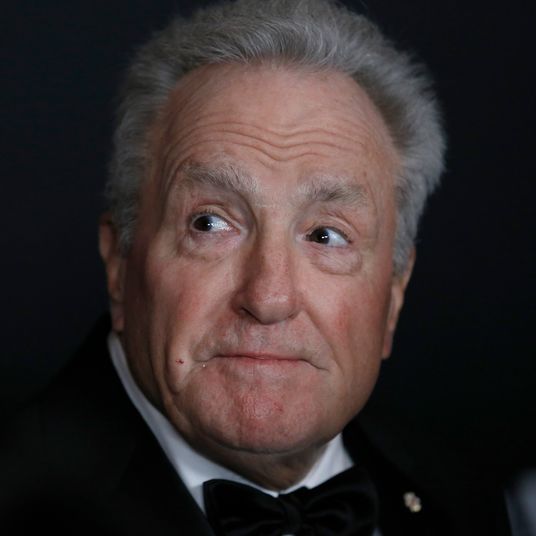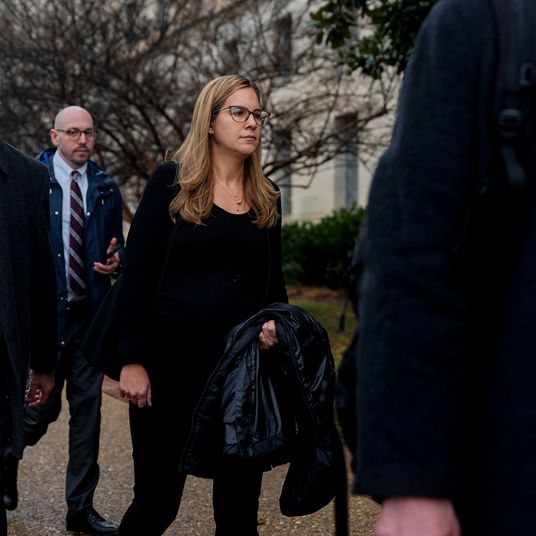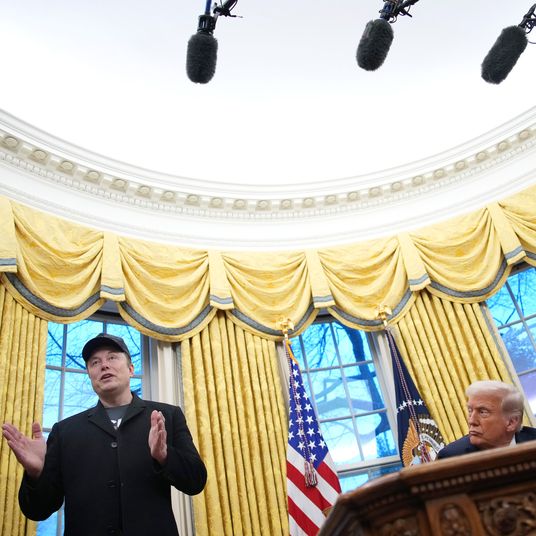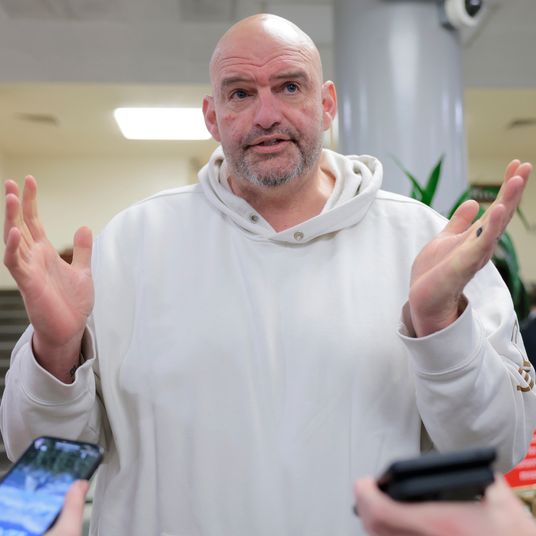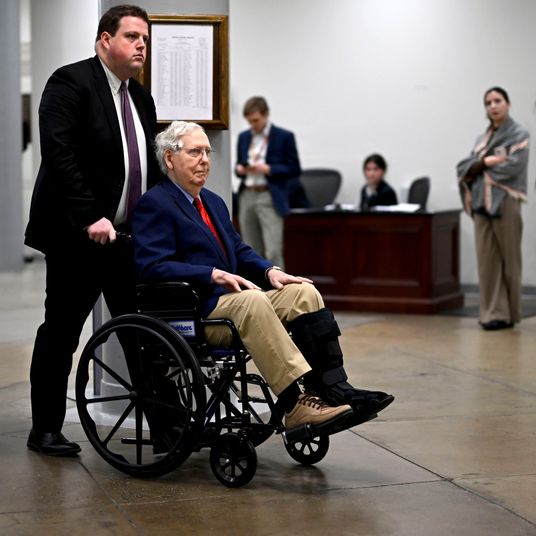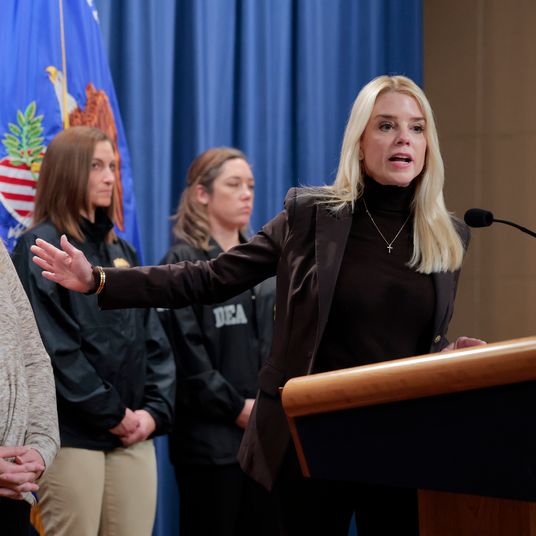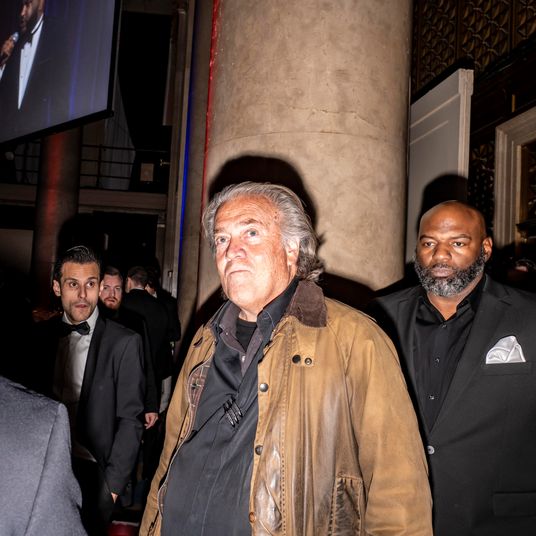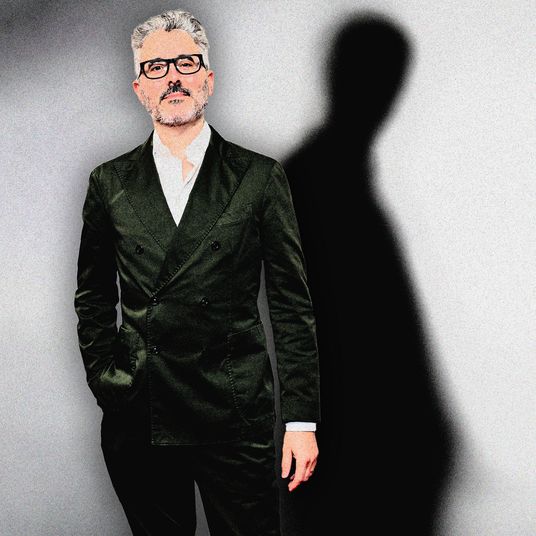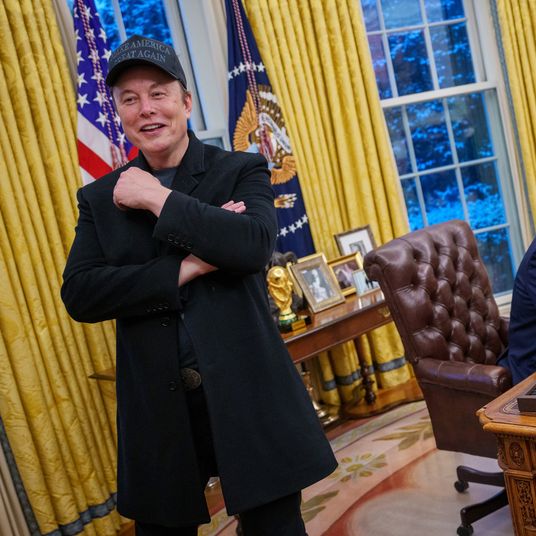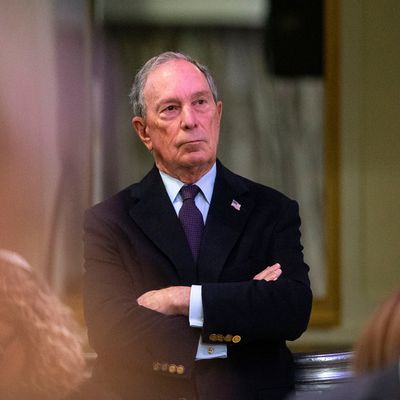
The only good news for potential presidential candidate Michael Bloomberg over the weekend was that a Morning Consult poll published Sunday found that he would defeat Trump by 6 points in a hypothetical general election matchup, with more respondents indicating they were undecided about who to vote for than in scenarios in which Trump faced Joe Biden, Elizabeth Warren, or Bernie Sanders — though all four still hypothetically defeated Trump by at least four points.
The bad news? If anyone out there in the electorate is clamoring for Bloomberg to enter the presidential race, they probably aren’t a Democrat. Only 4 percent of Democratic primary voters reached by Morning Consult said that the well-known billionaire would be their first choice in the contest. Even worse, 25 percent of those voters said they already held an unfavorable view of the former Democrat-turned-Republican-turned-Independent-turned-Democrat — meaning Bloomberg would start out late as the least popular candidate in the Democratic field.
The could-be candidate’s internal polls have apparently not been very promising either. Axios reported Sunday that the data-obsessed Bloomberg’s “very extensive” internal polling “remains far from convincing” and “shows big, perhaps insurmountable hurdles, particularly if Joe Biden stays in [the race]” — which he obviously will. Axios’ sources on Team Bloomberg also confirmed that last week’s whiff of a campaign was not just a way to ensure the former New York mayor could get on the Democratic primary ballot in Alabama, but a also a trial balloon to see how voters (and Never-Trump New York Times columnists) would react.
So “Baby Trump” may not have been the only balloon that got stabbed this weekend.
But while Bloomberg may not be able to count on Democratic primary voters, he may still have the support of the richest man in the world. Recode reported on Saturday that Jeff Bezos called Bloomberg earlier this year, sometime after Amazon cancelled its plans to build half of its HQ2 in New York, and asked him if he would consider entering the presidential race. (Bloomberg reportedly declined.)
When Bernie Sanders found out about Bezo’s request — during an interview he and Alexandria Ocasio-Cortez were doing with the Des Moines Register on Saturday — he had trouble responding because he couldn’t stop laughing. “Of course!” Ocasio-Cortez chimed in.
“They’ve got class solidarity. The billionaires are looking out for each other. They’re willing to transcend difference and background and even politics.”
Sanders — who takes credit for pressuring Amazon to raise its minimum wage to $15 an hour and has said that billionaires should not exist — eventually composed himself enough crack a joke.
“Jeff Bezos, worth $150 billion, supporting Mike Bloomberg, whose worth is only $50 billion, that’s real class solidarity. I’m impressed by that grassroots movement.”
Sanders also criticized Bloomberg’s late potential entry in the race, pointing out that the billionaire’s wealth allows him to skip the campaigning in the early primary states the other candidates have had to do, speculating that he would just dump money on ads in California instead.
“So that’s the corruption of the political system based on the kind of massive wealth inequality that exists right now,” Sanders told the Register. Indeed, the specter of Bloomberg and Bezos is almost custom made for Sanders campaign.
“Tonight we say to Michael Bloomberg and other billionaires: Sorry, you ain’t gonna buy this election,” Sanders said at Iowa rally later Saturday, prompting raucous applause from him supporters. “You’re not go to buy this election by spending hundreds of millions of dollars on media in California — those days are gone.”
Other Democratic candidates brushed off Bloomberg over the weekend as well. “I don’t think you can just waltz in and instead of saying, ‘I’m good enough to be president,’ your argument is that the other people aren’t good enough,” Amy Klobuchar said Sunday on CNN’s State of the Union.
“And when people look at the White House and they see this multi-millionaire, including, by the way, independents, moderate Republicans, and how now he’s messing up so many things, I don’t think they say, ‘Oh, we need someone richer.’”
Elizabeth Warren, campaigning in South Carolina on Saturday, also knocked Bloomberg’s alleged state-skipping strategy. “Look, to me this isn’t about politics, this is about democracy,” she said during an event in Goose Creek. “I’m here doing town halls in South Carolina because I want to be here. I think that our elections should not be something bought by billionaires, whether they’re reaching into their own pockets or whether they’re sucking up to the billionaires who can fund political action committees or make big donations.”
And some of America’s more than 700 billionaires are fighting back. As the Washington Post pointed out this weekend, at least 16 American billionaires have now publicly criticized Democratic populism targeting the rich — like Warren’s and Sanders’s calls for a wealth tax aimed at the the richest Americans. “For the first time ever, we are having a national political conversation about billionaires in American life. And that is because many people are noticing the vast differences in wealth and opportunity,” New York University historian Timothy Naftali remarked to the Post.
How afraid should billionaires be? Both Warren and Sanders wealth taxes would hit them hard, but probably still leave them extraordinarily wealthy. The New York Times passed along some data from two economists who have been advising Warren, who estimated that if her wealth tax had been in place since 1982:
[Bill Gates] would have had $13.9 billion in 2018 instead of $97 billion. Jeff Bezos, the world’s richest person, would have had $48.8 billion last year instead of $160 billion. And Michael Bloomberg, who is considering running for president himself, would have had $12.3 billion instead of $51.8 billion. As for the 400 people who made it to Forbes magazine’s list of the country’s wealthiest people, each would have an average worth of $3.1 billion, down from the current $7.2 billion.
Instead, quarter after quarter of historic economic expansion, inequality in America is getting worse, according to a new analysis by Bloomberg (the media organization), which found that America’s bottom 50 percent now hold only 6.1 percent of assets, but 35.7 percent of liabilities. Meanwhile the top one percent now holds as much as the middle and upper-middle classes combined.
There’s never been a better time to be a billionaire, unless you also want to be a candidate in the Democratic presidential race.






